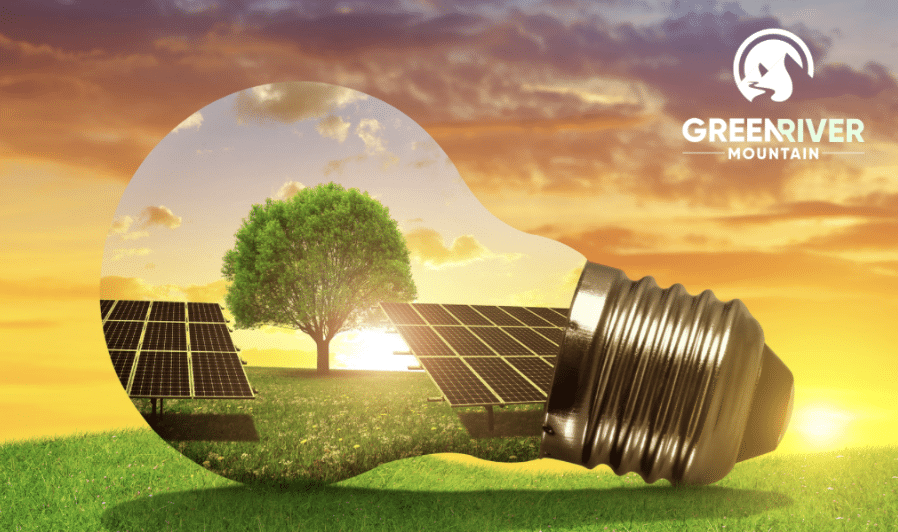The financial landscape is undergoing a seismic shift, driven by the urgent need for sustainable energy solutions and the growing awareness of environmental responsibility. In this era of change, solar farms have emerged as a beacon of hope, not only for a cleaner planet but also as alternative investments that can energize your portfolio with both conscience and financial returns. In this article, we’ll embark on a journey through the world of solar farms as alternative investments, focusing on their role in powering a sustainable portfolio in the United States.
The Solar Revolution in the United States
The United States, with its vast landscapes and abundant sunshine, is positioned as a key player in the global solar energy transformation. Here’s why solar energy is shining brightly across the nation:
- Clean and Renewable: Solar power is clean, renewable, and has a minimal environmental footprint. It aligns perfectly with the nation’s efforts to combat climate change and reduce carbon emissions.
- Rapid Growth: Solar energy capacity in the United States has been growing exponentially. The falling cost of solar panels, coupled with federal and state incentives, has accelerated adoption.
- Job Creation: The solar industry is a significant contributor to employment in the United States. It has created jobs in installation, manufacturing, and research and development.
- Energy Independence: Solar energy enhances energy independence by reducing reliance on fossil fuels, a crucial aspect of national energy security.
Why Invest in Solar Farms?
Investing in solar farms, whether you’re a private investor or an institution, offers a multitude of advantages:
- Steady Returns: Solar farms often provide a predictable and steady income stream, often through long-term power purchase agreements (PPAs). This stability can be an attractive feature for investors seeking steady cash flows.
- Sustainability and Impact: Solar farm investments not only generate financial returns but also contribute to environmental sustainability. It’s a way to invest with purpose and make a positive impact on the planet.
- Diversification: Solar farms can diversify a portfolio by adding an asset class that is not closely correlated with traditional investments like stocks and bonds.
- Resilience: Solar farms often have long lifespans and robust technology. They can withstand economic downturns and provide resilience to a diversified portfolio.
Types of Solar Farm Investments
- Direct Ownership: Investors can choose to directly own and operate solar farms. This approach offers the most control but typically requires substantial capital and expertise.
- Solar Funds: Solar funds pool investments from multiple investors to finance solar projects. These funds are managed by professionals who select and manage solar assets on behalf of investors.
- Real Estate Investment Trusts (REITs): Some REITs specialize in renewable energy assets, including solar farms. Investing in a solar-focused REIT provides exposure to solar energy with the benefits of real estate investment.
- Solar Bonds: Investors can purchase solar bonds, which represent debt securities issued by solar project developers or operators. These bonds provide regular interest payments and return of principal upon maturity.
Key Considerations for Solar Farm Investments
Before investing in solar farms, it’s essential to consider several factors:
- Location: Location plays a crucial role in the success of a solar farm. Areas with high sun exposure and supportive regulatory environments are typically more favorable.
- Due Diligence: Thorough due diligence is crucial. Investigate the track record of the developer or operator, assess project viability, examine financial projections, and confirm permitting status.
- Environmental Impact: Consider the environmental impact of the solar farm, including any potential harm to local ecosystems. Sustainable practices and responsible land management should be a priority.
- Regulatory Landscape: Ensure the project complies with local regulations. Regulatory changes can impact the financial viability of solar farms.
The Path Forward
The rise of solar farms as alternative investments represents a broader transition towards cleaner, more sustainable energy sources in the United States. As technology advances and economies of scale continue to reduce the cost of solar energy, solar farms will play a pivotal role in meeting energy needs while addressing environmental concerns.
Investing in solar farms offers not only the potential for financial returns but also the opportunity to actively contribute to a more sustainable future. It’s a chance to align your investment goals with your values while supporting the transition to clean energy.
In conclusion, solar farms as alternative investments are gaining prominence for their financial viability and environmental impact. They provide an avenue to invest with purpose and drive positive change. As the United States continues to harness the power of the sun, solar farms shine brightly as a beacon of hope for a cleaner and more sustainable future for all.
Green River Mountain (GRM) is an alternative investment sponsor dedicated to preserving wealth while fostering a more sustainable future. The information provided is of the opinion of Green River Mountain and for educational purposes only and is not intended as investment advice. GRM does not offer advisory services. Green River Mountain provides access to diverse investment opportunities not available in REITs or funds, and charitable donations that align with sustainable practices. Green River Mountain offers alternative investment opportunities with diversification benefits to institutional and accredited private investors through registered broker dealers and wealth management advisory firms.
